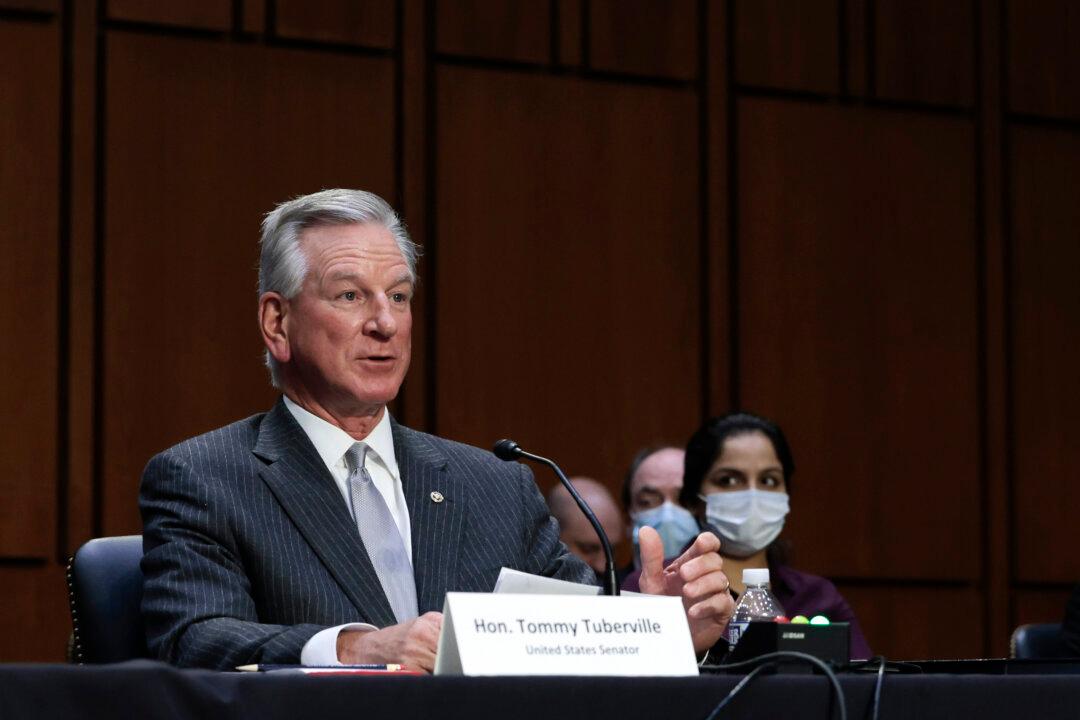A group of four Republican Senators attempted to advance votes on promotions and nominations for numerous U.S. military officers early on Thursday morning in their latest effort to circumvent fellow Sen. Tommy Tuberville’s (R-Ala.) hold on the Senate confirmation process.
Through the early hours on Thursday morning, Sens. Dan Sullivan (R-Alaska), Joni Ernst (R-Iowa), Todd Young (R-Ind.) and Lindsey Graham (R-S.C.) took turns requesting unanimous consent to proceed to individual votes on military nominees. Mr. Tuberville, with the help of Sen. Mike Lee (R-Utah), responded by objecting to their fellow Republicans’ motions, thereby blocking unanimous consent to advance these votes.





